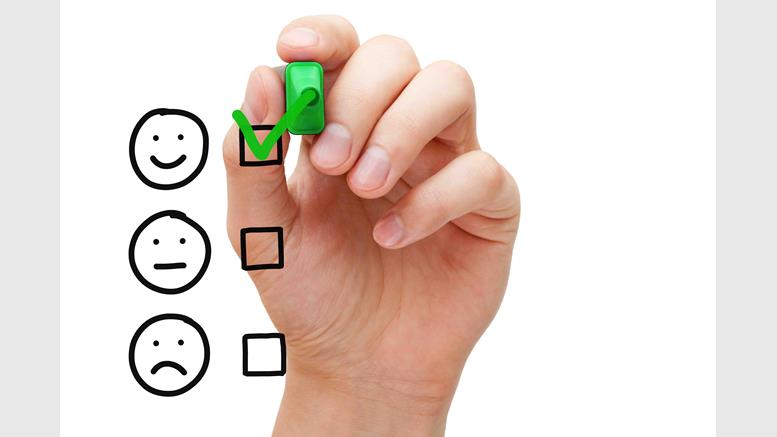
Study: Consumers Feel Bitcoin More Secure than Mobile Payments Apps
A new survey shows that US consumers believe payments made with bitcoin are safer than those conducted using mobile wallets or apps. The report, published by Chicago-based Walker Sands Communications, focuses on changes in retail payments behavior, particularly as it pertains to digital transaction methods. Ultimately, it found that 3% of respondents said that they consider bitcoin to be the most secure form of payments, compared to 1% for mobile phone or wallets. The study was conducted using a sample group of 1,400 consumers. The report said: "Consumers consider mobile wallets and apps....
Related News
Even though plenty of consumers are looking forward to using new and innovative mobile payment solutions, there are still a lot of security issues that need to be addressed. A recent study conducted by Ponemon Institute shows how mobile transactions lack proper security measures to keep payment data safe. As a result, there is a huge lack of confidence by both consumers and businesses. Bitcoin, on the other hand, has no issues securing mobile payments and is available for consumers all over the world.
Mobile payment methods will replace cash and cards in UK by 2020, according to research by Visa Europe. The study, which was concluded upon the participation of 12,015 European consumers, predicted that the UK markets will stem a whopping £1.2 billion/week, with six in ten Britons expecting to use their mobile device for making payments by the aforementioned year. At present, only one in 12 people use mobile payment methods. "The UK mobile payments boom will see an upsurge in the weekly value spent using mobile devices, with the market growing to an estimated £1.2 billion per week by....
Despite a selection of headlines to the contrary, bricks-and-mortar is still relevant to the digital payments consumer, although not in the traditional sense, says Visa’s 2016 Digital Payments Study. The study, for which Visa surveyed more than 36,000 online consumers in 19 European countries, says this is in addition to the number of Europeans regularly using a mobile device – a smartphone, tablet or wearable – for payments having tripled since 2015. It notes that “showrooming” – the act of seeing an item in-store before purchasing online – is an overwhelmingly popular shopping method for....
Over 60% of responding crypto owners said that they were interested in using crypto as a payment method to make online purchases more private or secure. Payments in cryptocurrencies like Bitcoin (BTC) make up one of the biggest use case demands among consumers alongside long-term investment, according to new data.Pymnts, a major payments-focused publication, released Monday a report on consumer preferences regarding cryptocurrency payments. Dubbed “Cryptocurrency Payments Playbook: Cryptocurrencies Gain Momentum As A Payment Option,” the study analyzes a survey of over 8,000 consumers in....
Quick Facts: ➡️ Crypto users increasingly rely on wallets for payments, trading, and DeFi, but most existing options remain clunky, fragmented, and poorly optimized for mobile. ➡️ Established wallet products often sacrifice either security or usability, leaving a wide gap for integrated, non-custodial, mobile-first experiences that feel like modern fintech apps. ➡️ Best Wallet aims […]





